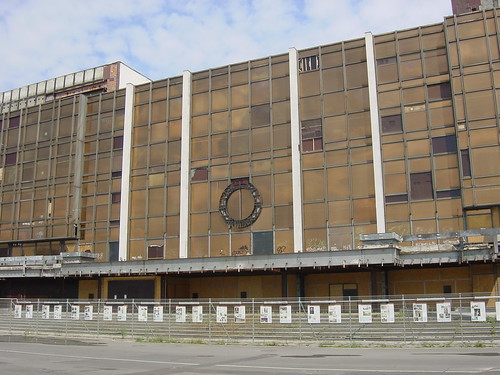During World War One German troops went into Russia, which was weakened after the the revolution and the take-over of power by the communists. It was a major German interest to establish a line of buffer states between Russia and central Europe. This was achieved when Russia signed the Treaty of Brest-Litovsk, which gave independence to a number of states that before formed part of Russia, including Ukraine, the Baltic states, Poland and also Finland.
Finland is the only country that was able to maintain its independence from 1918 till today. But immediately after gaining independence the Finnish Civil War broke loose, in which the socialist/communist Red Guards fought for several months in the beginning of 1918 against the conservative White Guards, which were lead by Marshall Mannerheim. There were cruetlies done on both sides, but it seems to me that the White Guards organized their way of fighting in a dramatic way, by establishing camps in which mass executions of the red enemies became daily business (see here). Parts of the White Guards were trained in Germany and formed so-called "Jäger" troops.
During the Civil War, Helsinki was held by the Red Guards. In early April 1918 Germany, still ruled by an Emperor at that time, sent troops to the Southern Finnish city of Hanko. From there they marched to Helsinki, conquered the capital and handed it over to the Whites.
The German prince Frederick Charles of Hesse even became elected king of Finland in 1918, but he ruled only for two month and afterwards Finland became finally a republic, with Kaarlo Juho Ståhlberg as the first president.
Later, during World War Two, the secret protocol included in the Hitler-Stalin (Molotov-Ribbentrop) Pact "allowed" Russia to conquer Finland (and other countries) again. Russia tried occupy Finland again during the so-called Winter War from November 1939 till March 1940, but gave finally up.
Few years after that, German troops again fought in the so-called Continuation War together with the Finns against Russia. No doubt about it that it would have been in no way desirable for anybody in the Western hemisphere that Finland would become part of Russia again. Still this does not excuse anything what happened several hundred kilometres South in central Europe in the name of Germany.
The Finns and the Russians signed a armistice. One of the conditions in there was, that all German troops had to be kicked out of Finland. This finally lead to the Lapland War, the last war in Finnland during World War II. The Germans, moving back towards West followed their strategy of "scorched earth", meaning they burnt most of the villages and towns they came through in order to not give anything into the hand of their enemy. The city of Rovaniemi was completely destroyed and re-built anew after the war.
There are much more details to all these issues, but to me it seems that those parts of history play a major role in the thinking that some Finnish people have about the Germans. It ranges from "You freed us from the Communists", over "Our fathers kicked the Russians out" to "You burned my hometown". It is all part of History and I am just happy that people here are not getting over-excited about these things but mostly making jokes about it.
E-Mail this to a friend
–
E-Mail the Author
–
Add to del.icio.us
Technorati Tags: finland germany history war worldwari worldwarii laplandwar continuationwar winterwar lapland hitler-stalin-pact finnishcivilwar civilwar mannerheim





